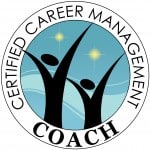Do you feel exhausted by the work that you do?
Have you become cynical or negative at work?
You may be headed for Job Burnout (or maybe you’re already there!).
According to the Mayo Clinic, job burnout is a special type of JOB STRESS – a state of physical, emotional or mental exhaustion combined with doubts about your competence and the value of your work.
Excessive workloads, pressure to meet high demands, and frustrating workplace dynamics are just a few of the challenges people frequently experience on the job.
It’s no wonder job burnout is becoming more prevalent as workers’ stress levels have progressively climbed higher over the past few decades in the workplace.
What are the Red Flags of Job Burnout?
Here are a few warning signs that you might be experiencing burnout:
• Physical, emotional or mental exhaustion
• Doubts about your competence or value at work
• Frequent negative thoughts about your job
• Feeling easily irritated, frequently misunderstood, or unappreciated by others
• Lack of satisfaction with your job
• Indifference or a lack of enthusiasm in your work
If you think that you might have problems related to burnout, here’s what you can do about it, but first Beware of The Ostrich Effect.
The Ostrich Effect Bias is a tendency to ignore a dangerous or negative situation. The name comes from the common (but false) myth that an ostriches bury their heads in the sand to avoid danger.
Be on the lookout for The Ostrich Effect which may be effecting you and your work life.
Ask yourself “What might happen if I continue to ignore the warning signs of job burnout?”
Burnout can not only impact how satisfied and fulfilled you are with your work. Job burnout can also undermine your health.
Numerous studies have shown that excessive work stress has been associated with increased rates of heart attack, hypertension, and other mental and physical disorders.
Your health may be compromised if you avoid dealing with your job situation.
So, don’t bury your head in the sand like an ostrich ignoring the warning signs! Make a decision to do something about it.
Here’s how to start:
Assess Your Situation
Identify what problems you are having at work.
One method to gather information and analyze the specifics about your job situation is to take a self-administered assessment.
A free online tool for job burnout can be found at:http://www.mindtools.com/pages/article/newTCS_08.htm
Redirect Your Energy
It’s natural to feel frustrated when problems arise at work. Rather than let the feelings overwhelm or harden you, choose to use your energy in a more productive way. Refocus on what you want to accomplish and the future you want to create.
By choosing to look at your situation with hope that your work life will get better and that YOU can become better – you take your power back!
Have faith that you are capable of overcoming this professional setback and believe that you will become wiser, stronger, and more resilient as a result of your experience.
Identify the Cause of Your Burnout
Get to the bottom of your problems once and for all. Figure out what is contributing to your burnout and why.
According to the Mayo Clinic, job factors that are common for burnout include:
• A lack of control (to influence decisions that affect your job)
• Unclear job expectations
• Dysfunctional workplace dynamics
• Mismatch in values
• Poor job fit
• Extremes of activity
• Lack of social support
• Work-life imbalance
Take Action
Talk with your boss about your situation and the factors that are making it challenging for you to do quality work. If your supervisor is open to hearing your ideas and solving the problems collaboratively, advocate for yourself. Ask for the opportunity to have more control over your schedule and the assignments you take on.
Engagement is the antidote to burnout.
Can you remember a time when you felt engaged in your work? What were you doing? Who were you working with?
Look closely at positions you have held in the past and the work that you found most rewarding.
Consider switching roles or departments at your workplace. If your current job doesn’t fit your strengths, interests, and abilities, look for opportunities to join another team, work under a different supervisor, or seek a job with a new employer.
Make your self-care a top priority. Find solutions that will help you to reduce stress and take better care of your mental and physical health. Develop healthy habits for eating, sleeping, exercise, and relaxation in order to be the best version of you.
Get support from friends, colleagues, family, your doctor or a Certified Career Coach. Create an action plan and take the necessary steps to alleviate your burnout and reach new goals.
© 2018 Jolie Steers. ALL RIGHTS RESERVED.



